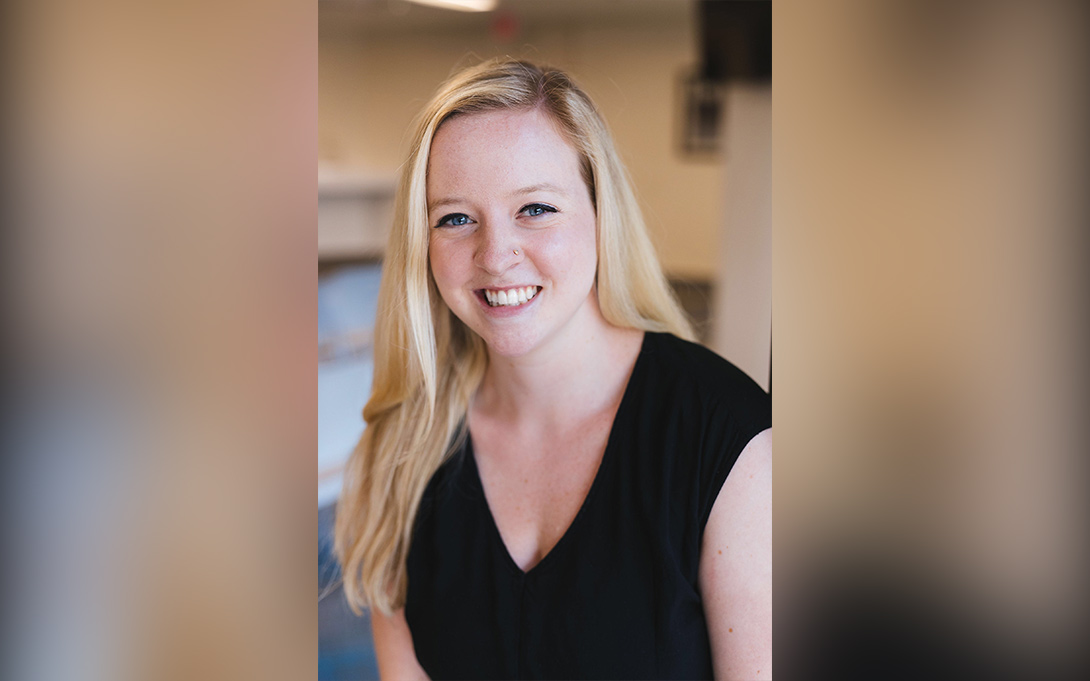
Ecuador's National Assembly has been able to debate and pass emergency legislation over Zoom, ensuring the safety of their staff, responding to the crisis, and setting an example for other governments in the region that legally continue to hold in-person sessions.”
In many countries, longstanding government practices came to a halt amid COVID-19 restrictions. Ford School alum Meghan Rowley (BA '18), Latin America program associate at the International Republican Institute (IRI), has been helping to implement strategies to ensure legislative processes remain fair and democratic and meet the needs of their citizens.
Rowley implements democracy development and government assistance grants in Latin America. When the pandemic struck, her team reached out to contacts on the ground to swiftly identify what local leaders from Panama, Guatemala, Colombia, Dominican Republic, and the Ecuador National Assembly (Congress) might need. Specifically, IRI organized a virtual forum where local government representatives from these countries shared approaches and challenges to COVID-19. Needs fell into two categories: effective two-way communication with citizens to understand their needs and share important information and navigating new governmental procedures while mitigating corruption - all in a virtual environment.
Many citizens are seeking access to credible public information and virtual spaces to discuss responses to government mandates. In Panama and Ecuador, IRI has helped establish crisis communications strategies, share messages through virtual town halls and social media, and solicit public comments online.
Early on, state officials scrambled to find ways to continue passing legislation with stay-at-home orders in place. Since Zoom is less common in Latin America, Rowley’s team helped lead Zoom tutorials and IRI distributed instructive resources in Spanish. In Ecuador, laws had to change to pass any virtual legislation. “Previously, Ecuadorian Law mandated all legislative debates and vote sessions be held in person, endangering the health and safety of all essential legislative personnel,” Rowley explained. After IRI’s Zoom tutorial, Ecuador’s National Assembly quickly passed a resolution legalizing virtual plenary debates and voting sessions via Zoom.
Virtual governance brings other questions into focus on ethics and corruption and recent reports note inflated contracts for medical equipment and humanitarian supplies. “With pressing needs and many governments working remotely, opportunities for corruption can arise,” Rowley explained. Mitigating corruption early on can limit these opportunities and help countries transition to typical procedures more smoothly in a post-pandemic setting. Through trainings and webinars, Rowley and her IRI team are working to “share best transparency practices with government representatives and connecting them with regional anti-corruption experts.”
With some technological barriers removed and new tools and strategies at their disposal, Latin American governments have been able to resume some of their basic legislative functions in a new virtual environment. “Ecuador's National Assembly has been able to debate and pass emergency legislation over Zoom, ensuring the safety of their staff, responding to the crisis, and setting an example for other governments in the region that legally continue to hold in-person sessions,” said Rowley.
Read more about Rowley and her team’s work at IRI here. You can also follow her or IRI on twitter @megs_rowley and @IRIGlobal.
Rowley joined IRI in February of 2019. In her role as a Program Associate, she helps to implement several democracy and governance grants in IRI’s Ecuador and Panama portfolios. These grants focus on topics such as strengthening civil society organizations, building investigative expertise for local journalists, increasing compliance with international anti-corruption standards, improving local government capacity for citizen participation, legislative strengthening and transparency, and youth, gender, and inclusion. Her responsibilities include working with IRI’s in-country field teams to report on in-country political updates as they relate to program execution, draft quarterly reports that monitor and evaluate program outcomes, track and predict program spending, and contribute to proposal development and cost applications. Prior to joining IRI, Rowley was an International Trade Project Assistant at Wiley Rein LLP, where she reviewed and filed legal arguments about various internationally traded products with federal agencies, as well as tracked and notified attorneys of new tariff announcements to help determine the impact on clients. During her time at the Ford School, Rowley interned for the Atlantic Council, a D.C. based foreign policy think tank, studied abroad in Belgium, Chile and Costa Rica, and acted as the Managing Editor for the Michigan Journal of International Affairs.